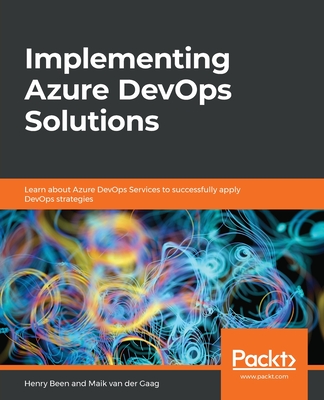Policy Design in the Age of Digital Adoption: Explore how PolicyOps can drive Policy as Code adoption in an organization's digital transformation
暫譯: 數位採用時代的政策設計:探索 PolicyOps 如何推動組織數位轉型中的政策作為程式碼採用
Ferreira, Ricardo
- 出版商: Packt Publishing
- 出版日期: 2022-05-04
- 售價: $1,950
- 貴賓價: 9.5 折 $1,853
- 語言: 英文
- 頁數: 332
- 裝訂: Quality Paper - also called trade paper
- ISBN: 1801811741
- ISBN-13: 9781801811743
-
相關分類:
GAN 生成對抗網絡
海外代購書籍(需單獨結帳)
相關主題
商品描述
A proven methodology to build a PolicyOps function and public policy design frameworks for digital adoption, supporting your organization's journey into new paradigms and service models such as Cloud, SaaS, CaaS, FaaS, and DevOps
Key Features
- Understand and define policies that can be consumed across the business
- Leverage a framework to embed Policy as Code into the organization
- Learn how to use Open Policy Agent and its powerful policy language, Rego
Book Description
Policy as Code (PaC) is a powerful paradigm that enables organizations to implement, validate, and measure policies at scale. Policy Design in the Age of Digital Adoption is a comprehensive guide to understanding policies, their design, and implementation for cloud environments using a DevOps-based framework. You'll discover how to create the necessary automation, its integration, and which stakeholders to involve.
Complete with essential concepts, practical examples, and self-assessment questions, this book will help you understand policies and how new technologies such as cloud, microservices, and serverless leverage Policy as Code. You'll work with a custom framework to implement PaC in the organization, and advance to integrating policies, guidelines, and regulations into code to enhance the security and resilience posture of the organization. You'll also examine existing tools, evaluate them, and learn a framework to implement PaC so that technical and business teams can collaborate more effectively.
By the end of this book, you'll have gained the confidence to design digital policies across your organizational environment.
What you will learn
- Understand policies, guidelines, regulations and how they fit together in an organization
- Discover policy-related current challenges brought by digital transformation regarding policies
- Find out about Open Policy Engine (OPA) and other policy engines for different environments
- Get to grips with the latest developments in PaC through a review of the literature, toolset, and usage
- Explore the PaC framework to develop trust at scale, leveraging patterns and best practices
- Become familiar with tool evaluation and selection using real-world examples
Who this book is for
From decision-makers, such as chief information officers (CIOs) and chief information security officers (CISOs) responsible for affecting change horizontally in an organization, to cloud and DevOps architects and engineers, this book will help professionals involved in designing, implementing, and measuring policies in their organizations. A basic understanding of concepts such as cloud-native technologies, Infrastructure as Code, DevOps, and automation is necessary to get started with this book.
商品描述(中文翻譯)
一種經過驗證的方法論,用於建立 PolicyOps 功能和公共政策設計框架,以支持您的組織在雲端、SaaS、CaaS、FaaS 和 DevOps 等新範式和服務模型中的轉型之旅。
主要特點
- 理解並定義可以在整個業務中使用的政策
- 利用框架將政策作為代碼(Policy as Code)嵌入組織中
- 學習如何使用 Open Policy Agent 及其強大的政策語言 Rego
書籍描述
政策作為代碼(Policy as Code, PaC)是一種強大的範式,使組織能夠在大規模上實施、驗證和衡量政策。《數位採用時代的政策設計》是一本全面的指南,幫助您理解政策、其設計及在雲端環境中使用基於 DevOps 的框架進行實施。您將發現如何創建必要的自動化、其整合以及需要涉及的利益相關者。
本書包含基本概念、實用範例和自我評估問題,將幫助您理解政策以及雲端、微服務和無伺服器等新技術如何利用政策作為代碼。您將使用自定義框架在組織中實施 PaC,並進一步將政策、指導方針和法規整合到代碼中,以增強組織的安全性和韌性。您還將檢視現有工具,評估它們,並學習一個實施 PaC 的框架,以便技術和業務團隊能夠更有效地協作。
在本書結束時,您將獲得設計數位政策的信心,並能在您的組織環境中應用。
您將學到的內容
- 理解政策、指導方針、法規及其在組織中的相互關係
- 發現數位轉型帶來的與政策相關的當前挑戰
- 了解 Open Policy Engine (OPA) 和其他針對不同環境的政策引擎
- 通過文獻回顧、工具集和使用情況掌握 PaC 的最新發展
- 探索 PaC 框架以大規模建立信任,利用模式和最佳實踐
- 熟悉使用實際範例進行工具評估和選擇
本書適合對象
本書適合從決策者(如首席資訊官 CIO 和首席資訊安全官 CISO)到雲端和 DevOps 架構師及工程師的專業人士,幫助他們設計、實施和衡量組織中的政策。開始閱讀本書之前,需具備雲原生技術、基礎設施即代碼(Infrastructure as Code)、DevOps 和自動化等概念的基本理解。
作者簡介
Ricardo Ferreira MSc is a technologist that loves to democratize technology. His career has been diverse, ranging from technical contributor to senior management in a Big Four where he advised some of the largest financial organizations how to adopt Cloud securely. This variety of experiences gave him a holistic understanding of organizations' challenges when adopting new emerging technologies, and how to drive policies for digital enablement.
Currently, Ricardo is an EMEA CISO for Fortinet, aligned with sales and marketing, engaging with CxOs to drive cybersecurity awareness where he helps customers adopt information security strategies. He is an active member of the cyber security industry, contributing to CNCF and CSA computing standards.
作者簡介(中文翻譯)
Ricardo Ferreira 碩士是一位熱愛民主化科技的技術專家。他的職業生涯多樣化,從技術貢獻者到四大會計師事務所的高級管理層,期間他為一些最大的金融機構提供建議,幫助他們安全地採用雲端技術。這些多樣的經驗使他對組織在採用新興技術時所面臨的挑戰有了全面的理解,並能推動數位賦能的政策。
目前,Ricardo 是 Fortinet 的 EMEA CISO,與銷售和市場部門協作,與 CxO 進行互動以提升網路安全意識,幫助客戶採用資訊安全策略。他是網路安全產業的活躍成員,為 CNCF 和 CSA 計算標準做出貢獻。
目錄大綱
1. Introduction to the Policy Design Theory
2. Operationalizing Policy for Highly Regulated Industries
3. Policy as Code as a Business Enabler
4. Framework for Digital Policies
5. Policy for Cloud-Native Environments
6. Policy Design for Hybrid Environments
7. Building a Culture of PolicyOps
8. Policy Engines
9. A Primer on Open Policy Agent
10. Policy as Code Tool Evaluation
11. Cloud Providers Policy Constructs
12. Integration with Existing Enterprise Workflows
13. Real-World Scenarios and Architecture
目錄大綱(中文翻譯)
1. Introduction to the Policy Design Theory
2. Operationalizing Policy for Highly Regulated Industries
3. Policy as Code as a Business Enabler
4. Framework for Digital Policies
5. Policy for Cloud-Native Environments
6. Policy Design for Hybrid Environments
7. Building a Culture of PolicyOps
8. Policy Engines
9. A Primer on Open Policy Agent
10. Policy as Code Tool Evaluation
11. Cloud Providers Policy Constructs
12. Integration with Existing Enterprise Workflows
13. Real-World Scenarios and Architecture


























